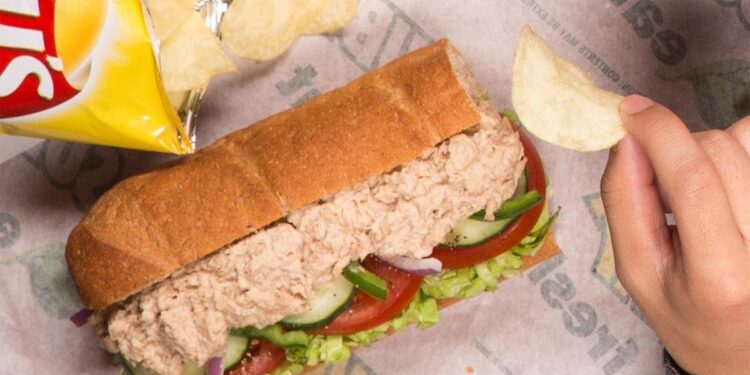Crédito: fuente
There’s something fishy about Subway’s tuna salad sandwiches and wraps, but the menu items don’t happen to include any actual fish, according to a lawsuit filed against the fast-food chain.
What Subway bills as tuna is a «mixture of various concoctions that do not constitute tuna, yet have been blended together by defendants to imitate the appearance of tuna,» according to the complaint.
Filed last week in the U.S. District Court for the Northern District of California on behalf of two California residents, Karen Dhanowa and Nilima Amin, the lawsuit contends the two «were tricked into buying food items that wholly lacked the ingredients they reasonably thought they were purchasing,» based on its labeling.
«Consumers are consistently misled into purchasing the products for the commonly known and/or advertised benefits and characteristics of tuna when in fact no such benefits could be had, given that the products are in fact devoid of tuna,» the suit claims.
«Conducting tests»
Alex Brown, an attorney with the Lanier Law Firm who is representing Dhanowa and Amin in the case, said they are trying to determine what ingredients are used in Subway’s tuna. «We are conducting tests to figure out what it is. The lab tests thus far have only told us what it isn’t,» he said in an email to CBS MoneyWatch.
A spokesperson for the company denied the claims laid out in the lawsuit. «There simply is no truth to the allegations in the complaint that was filed in California,» Maggie Truax, director of Global PR, said in an email to CBS MoneyWatch «Subway delivers 100% cooked tuna to its restaurants, which is mixed with mayonnaise and used in freshly made sandwiches, wraps and salads that are served to and enjoyed by our guests.»
According to the company’s website, the tuna salad in the chain’s sandwiches is made with flaked tuna in brine, mayonnaise and a flavor-protecting additive.
«Unfortunately, this lawsuit is part of a trend in which the named plaintiffs’ attorneys have been targeting the food industry in an effort to make a name for themselves in that space,» Truax said.
If certified as a class-action, the suit could potentially represent thousands of Subway customers who bought tuna sandwiches or wraps after January 21, 2017, in California, where it has 2,266 locations.
The suit isn’t the first legal dispute that raised questions about Subway’s products. Ireland’s Supreme Court in September ruled that the bread Subway uses in its sandwiches could not legally be called bread because of its high sugar content. And in 2017, an appeals court threw out a class-action settlement over claims the chain’s «footlong subs» where an inch shy of the length advertised.










